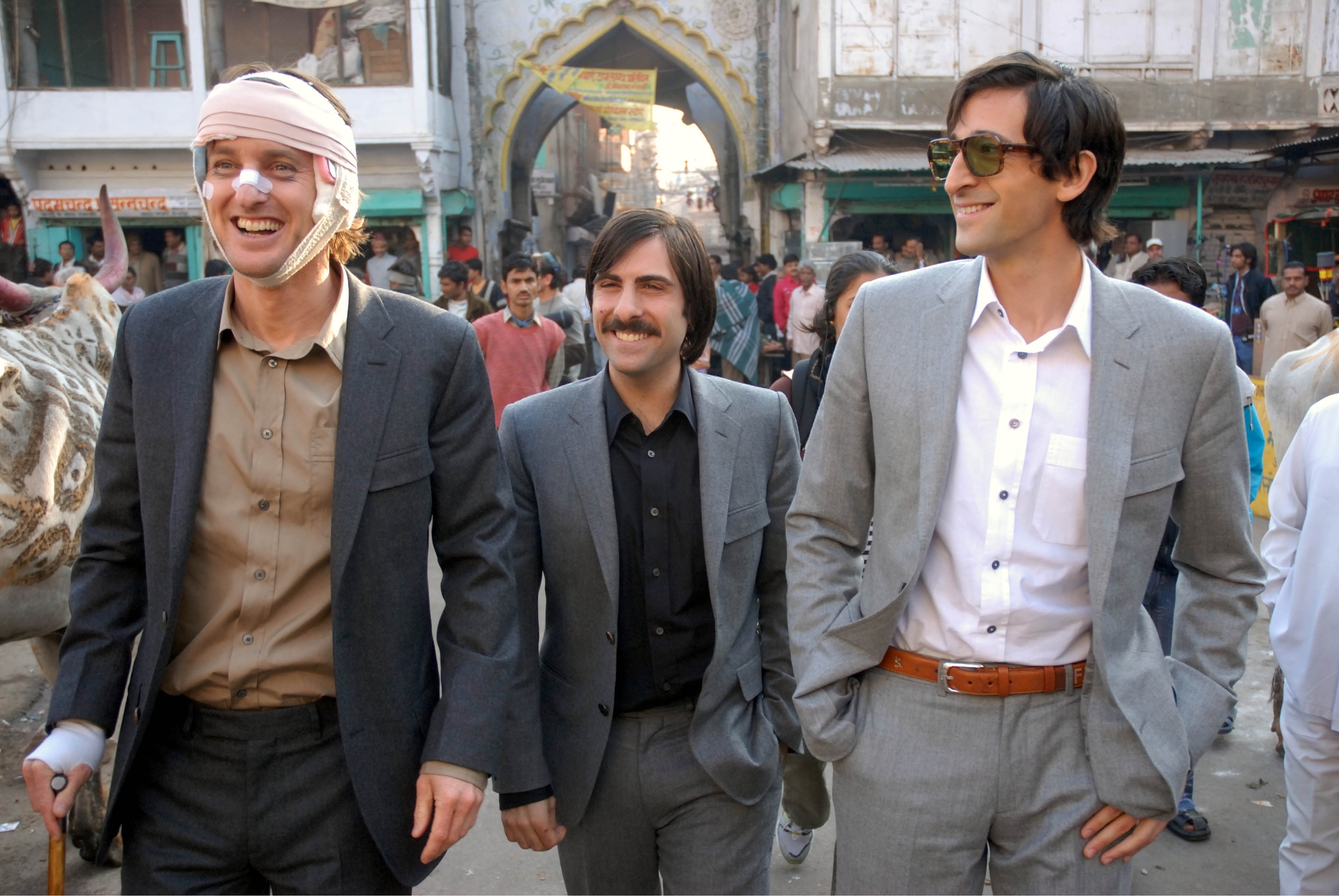The Darjeeling Limited (2007) dir. Wes Anderson
“I wonder if the three of us would’ve been friends in real life. Not as brothers, but as people.”
If I had to choose a film from Wes Anderson’s rapidly growing filmography that has aged the finest, it would have to be 2009’s Fantastic Mr Fox, a film which continually reveals deeper, meditations on life, grief and mortality, on every rewatch. Mr Fox is not only the most human of all Anderson’s protagonists, but he is also the last allowed to have a fully fleshed out arc and journey which ends with one of the greatest moments of catharsis put to film. He’s an animated fox having a mid-life crisis and returning to a life of crime. It’s the high point of Anderson’s career and the turning point when he shifted from grounded but absurd family dramady to something of his own entirely. The penultimate addition to these grounded absurdities was 2007’s The Darjeeling Limited where the metaphors are obvious and blunt, the depiction of India is serene and the family is dysfunctional yet everything comes together to be the greatest of Anderson’s live action work.
Torn apart by grief and brought together by a horrific motorcycle accident three brothers, Francis (Owen Wilson), Peter (Adrien Brody) and Jack (Jason Schwartzman) set out across India in search of their estranged mother while weighed down by the mountain of Louis Vuitton baggage of their deceased father, subtle this is not. Francis, face bound tight in bandages, various pads and patches after his possibly purposeful motorcycle crash wants to get to know his younger brothers and traps them on a train thousands of kilometres away from home to ensure reconciliation.
The train itself, the titular Darjeeling Limited, is a thing of wonder and might as well have rolled right out of a fairytale recreation of the real world. It’s a fantastic set full of wonderful details and intricate dynamics. The Chief Steward played by Waris Ahluwalia doesn’t miss an opportunity to admonish the brothers, whether for bringing a deadly snake on board and losing it in their room or fighting in the hallways with pepper spray. He hates the brothers and the first inkling or their potential reconciliation is their shared hatred of him. Whether you consider the train as a metaphor for life itself, the grieving process or something else entirely you know a train can only go forward, on one track that can turn but is one track nevertheless. A train has a known beginning and end, until it doesn’t. Right before the end of the first act, the train stops and gets lost. “How can a train be lost? It’s on rails.” Subtle this movie is not.
Life isn’t going to be perfect, the grieving process isn’t going to be perfect, whatever metaphor you want to give the train will never be perfect even if you know the destination and it seems nothing could possibly go awry. Even if it’s on rails something will go wrong. No number of flawlessly planned, laminated schedules can fix what is fundamentally flawed.
The Darjeeling Limited is a special movie, equally portraying gut-wrenching sadness while being full of whimsy and joy. Few films can find that balance and even fewer can pull it off. Just like Fantastic Mr Fox, The Darjeeling Limited ends with a needle drop and the greatest moment of catharsis in Anderson’s career. Because that’s what this movie is about. It’s about giving the audience catharsis so they don’t need to do a bizarrely beautiful train ride with their estranged family members through India (although I believe Anderson would feel oddly vindicated if they did.) The Darjeeling Limited is oddly comforting and if you watch it every couple of years, as is true with most of Anderson’s work, more will reveal itself to you.




